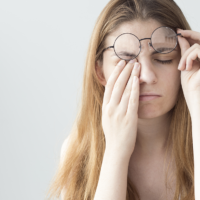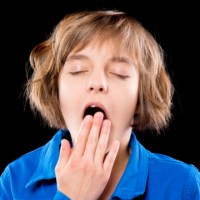disturbed sleep
-

Chronotype and Depression in Adolescence
We know that there is a bidirectional association between sleep duration/quality and depressive symptoms in youth. In adult populations depressive symptoms and circadian rhythms (sleep chronotype) have also been linked. In this paper, we established an association between chronotype and depressive symptoms in middle adolescence, independently of poor sleep and prior mental health difficulties.
Read more -

Insufficient sleep during adolescence might pose a risk for later depression and anxiety
A new study published in the Journal of Child Psychology and Psychiatry has found that young people who have poor sleep quality and quantity might be at risk of poor mental health later in adolescence and early adulthood.
Read more -

Does DNA methylation link sleep disturbances to mental health problems?
Sleep disturbances have long been linked to mental health problems in children, but the underlying mechanisms of this relationship are unclear.
Read more -

Homelessness and its impact on children
In the run up to Christmas, this article aims to outline previous research on the effects of homelessness and the potential solutions already outlined, as well as point towards future research and actions.
Read more -

Bullying
Not long ago, bullying was viewed as a normal part of childhood’s formative experiences. Over the past 50 years, since the pioneering work of Dan Olweus (1970), bullying started to be recognized as a complex public health matter and a social problem. Solid evidence has accumulated about the impact of bullying victimization on children’s and adolescents’ (hereby youth) mental health and well-being.
Read more -

Sleep
Children and adolescents who are experiencing difficulties with their mental health also often struggle with their sleep. Indeed disrupted or altered sleep has been associated with most psychiatric disorders (Gregory & Sadeh, 2016). Although a range of sleep difficulties can co-occur with mental health problems, a common difficulty is insomnia. As such this guidance will primarily focus on difficulties with getting to sleep and staying asleep.
Read more